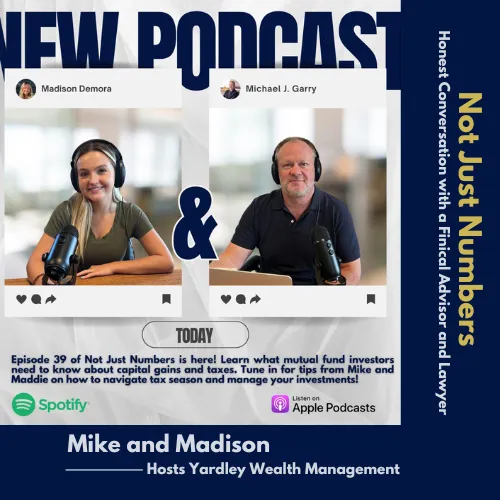Episode 39:Understanding Capital Gains: What Mutual Fund Investors Need to Know.
Hosts: Madison Demora and Mike Garry
Episode Overview
In this timely episode, Mike Garry discusses the important year-end considerations regarding mutual fund capital gains distributions and their tax implications. The discussion covers strategies for minimizing tax impact, understanding distribution schedules, and making informed decisions about mutual fund investments in taxable accounts. This episode provides crucial information for investors to prepare for potential tax consequences of their mutual fund holdings.
Listen to Our Podcast On:
Timestamps
- 00:08 – 03:49 – Introduction to episode topic: Understanding Capital Gains: What Mutual Fund Investors Need to Know
- 03:50 – 05:51 – Impact of Large Capital Gains Distributions
- 05:52 – 07:55 – Minimizing Tax Implications
- 07:56 – 10:53 – Tools and Tactics for Investors
- 10:54 – 13:52 – Wash-Sale Rule & Tax-Loss Harvesting
Follow Us on Social Media
Stay updated with the latest episodes and news by following us on social media:



